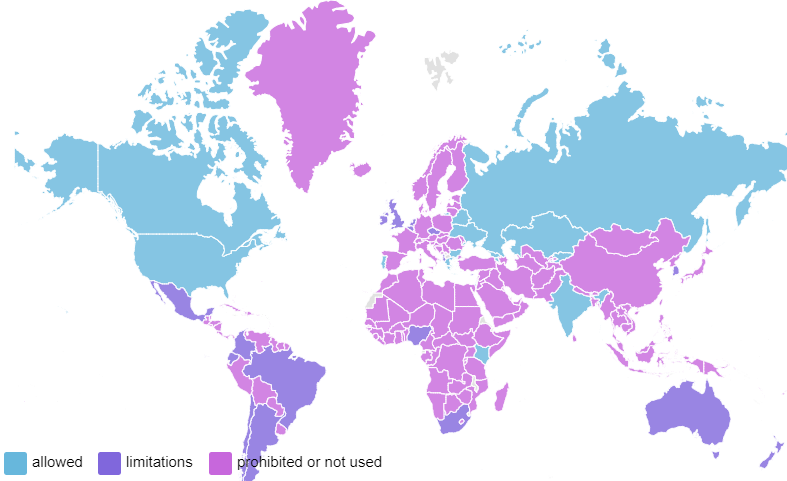In Georgia, Russia and Ukraine, most of the US states, surrogacy is fully legalized. These countries figure prominently on the reproductive tourism map.
Bill Houghton, CEO of Sensible Surrogacy describes the people who use the services of surrogate mothers: “They are mainly citizens of England, Germany, France and Sweden. Half of them are heterosexual couples, half are homosexual.” People of homosexual orientation face great difficulties – they can easily use the help of a surrogate mother only in Canada and the USA. Also in Belgium, the Ghent University Hospital is accredited to attract surrogate mothers to reproductive programs for same-sex couples and single people of homosexual orientation.
The advantages of the USA and Canada in the context of surrogate motherhood are offset by a high price – in the USA, restrictions on surrogate motherhood (exclusively non-commercial) – in Canada. Not every couple or single person can afford this.
In Europe, surrogate mother services can also be used in Greece and the Czech Republic. But here, too, there are problems: in the Czech Republic a surrogate mother can keep the child for herself, if she does not abandon it officially in writing. Even after signing the refusal, future parents will face paperwork with the adoption of their child. And this despite the fact that the procedure is called simplified. In Greece, obtaining full parental rights is possible through the courts. Until the decision is made, the surrogate mother is considered as a mother of the child.
Surrogacy is also legal in Kenya, but the specific phenotype, level of medicine and service, and geographic location make Kenya not very popular in terms of reproductive tourism.
Surrogacy is legal in Armenia, Georgia, Kazakhstan, Russia and Ukraine. And there are also many different buts here. In the first three countries, there is insufficiently high-level reproductive medicine, a specific phenotype and conservative orders.
Russia is a rather loyal country to surrogate motherhood, but even here it cannot do without legal collisions. The signed contract between the parents and the surrogate mother does not guarantee strict compliance with all agreements. For example litigation on parental rights between the Frolov family and the surrogate mother T. Suzdaleva. Despite the satisfaction of the claim of biological parents, Suzdaleva initiated repeated proceedings during the year in order to keep two boys for herself. And from January 1, 2021, a new law of July 31, 2020 N803n “On the procedure for using assisted reproductive technologies, contraindications and restrictions on their use” came into force, complicating the work of reproductive clinics with surrogate mothers so that some refused to work with surrogate mothers.
Based on the above, Ukraine seems to be the most suitable choice: a convenient geographical location, a high level of reproductive medicine and guest service comparable to the United States, health and cleanliness of Ukrainian women, well-developed legislation that reliably protects the rights of biological parents, prices are several times lower than American ones and guaranteed healthy baby birth programs.
Thanks to all these points, Ukraine has been included in the world TOP of reproductive tourism for many years.
A number of Ukrainian clinics offer high-quality reproductive services through partnerships with US clinics. At the same time, the cost of the contract will be significantly lower than with direct contact to a US clinic.
When working with Ukrainian surrogate mothers, future parents can be absolutely sure of obtaining parental rights for a newborn.
